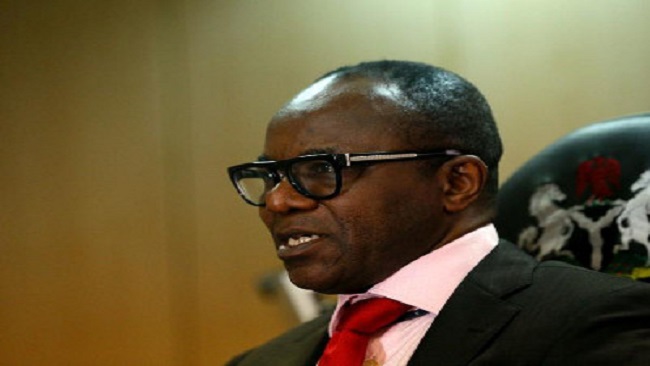Nigeria: More oil cash needed to avoid conflict in Niger Delta
Nigeria’s oil minister will visit the Niger Delta this week in a bid to stave off a threat of more insurgent attacks in the area saying without more investment it would be a struggle to ease tensions and develop its main crude producing region.
The Niger Delta Avengers, whose attacks on energy facilities in the region last year helped push Africa’s biggest economy into recession, said it had ended its ceasefire in its campaign for more of Nigeria’s oil earnings.
“We’re constrained by cash,” Emmanuel Ibe Kachikwu, the minister of state for petroleum, told Reuters when discussing efforts to develop the Delta. “We’ve scurried around for money just to begin the process.”
He said he would meet representatives of the militants and other stakeholders during a visit to the region. The minister said government needed to develop its oil and economy to deliver on promises of more cash for the Delta, which rights groups say has long suffered from pollution and poor investment despite being the source for much of Nigeria’s oil output of around two million barrels per day (bpd).
Kachikwu said a return to violence by militants would be “mutually destructive”, adding: “I am sure like they did the last time, when they see a concrete action plan they would listen.” Attacks in the oil producing region drove Nigeria’s oil output down to close to a million bpd. The Organisation of the Petroleum Exporting Countries (OPEC) granted Nigeria an exemption from a global deal to curb output to help it recover.
In its race to rebuild, Kachikwu said Shell and Eni should press on with developing oil prospecting licence (OPL) 245. The $1.3 billion award of the block in 2011 is subject to corruption investigations and court cases. The firms deny wrongdoing.
“It’s been allocated and there are development plans for the block and those development plans should go forward,” Kachikwu said. “Development of assets should not suffer because we are dealing with a legacy transparency issue.”
The minister intends to launch a “roadmap” in January inviting investors to fund repairs and upgrades to pipelines and oil depots, mirroring efforts that aim to draw $1.5 billion to $2 billion into Nigeria’s ailing refineries.
Kachikwu said the plans would not involve selling state-owned stakes but attracting private capital was essential. “We don’t have the resources, and we don’t have the time to raise the resources, to revamp the sector,” he said.
On changes in the industry, the minister said revisions to oil contracts and operations at state oil company NNPC saved money, citing deals to exchange crude for fuel, dubbed “direct sale, direct purchase”, that saved the state $1 billion.
Nigeria called for early talks to renew oil licences held by Shell, Total and others. Licences for several key fields expire in two years and oil firms are reluctant to make big investments without long-term assurances. Kachikwu said talks could be concluded by the first quarter of next year, although negotiations handled by the Department of Petroleum Resources had not yet started.
Source: Reuters





